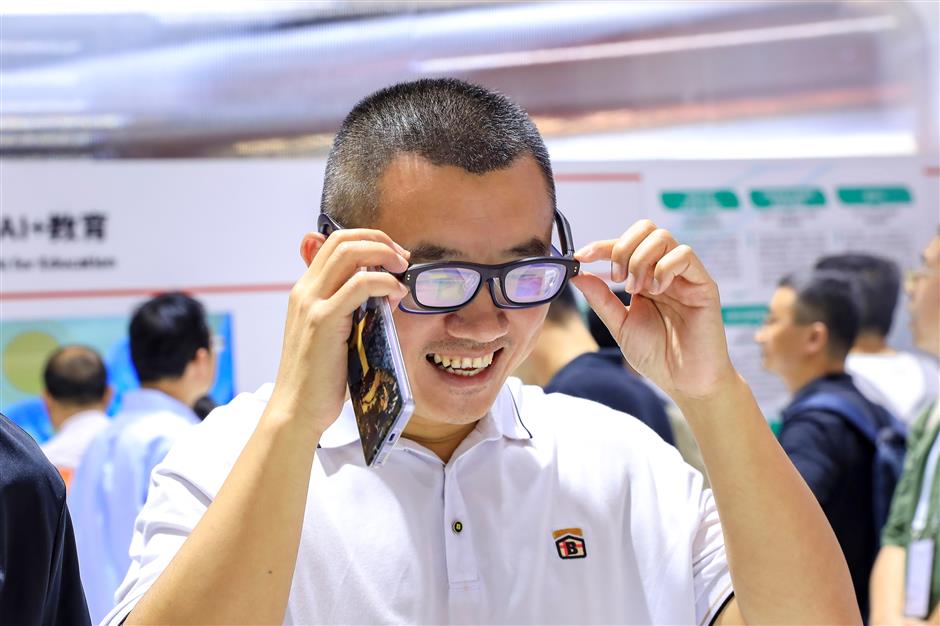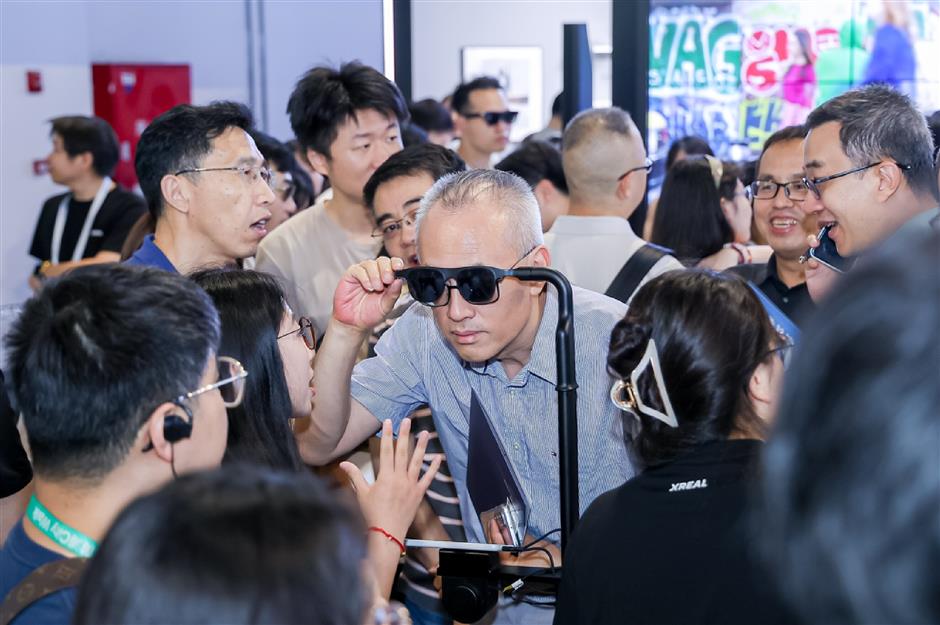Tomorrow's technology today: the burgeoning market for smart glasses

Wearing smart glasses or headsets for work, study or gaming was long seen as a futuristic concept until wearable devices came onto the market to turn fiction to fact.
While international tech giants like Meta and Apple have dominated the market, their products are often unavailable in China or priced out of the reach of most consumers.
Enter Chinese manufacturers who are developing a wide range of affordable but advances alternatives.
Guangdong Province-based technology company Vivo is poised to launch its Vision Pro on the mainland, a spatial computing device with a design similar to Apple's Vision Pro but with a much lighter weight and more accessible price point.
Hu Baishan, Vivo's executive vice president and head of Vivo research institute, described the device as "tomorrow's technology available today." He said it represents Vivo's long-term vision of "bringing mixed reality from the lab to daily life."

The new device, officially named the Vivo Vision Discovery Edition, emphasizes intuitive and natural interaction. It features high-precision eye-tracking, 26 degrees of freedom in fingertip gesture recognition and a wide vertical tracking range. At only 398 grams, it is much lighter than the over 600-gram Apple Vision Pro – a weight aimed at encouraging users to wear devices for more than 30 minutes without discomfort.
The official price and sales starting date have not yet been confirmed, but company executives have hinted at a price around 10,000 yuan (US$1,380), less than half the cost of Apple's device. The Vision Pro is currently available for testing at 13 Vivo stores across China, including those in Shanghai, Beijing and Shenzhen.
Vivo is not alone in seizing opportunities in the market for wearable devices. Chinese companies like HTC, XReal, Huawei and Xiaomi have recently released their own smart glasses and headsets. According to International Data Corp, China's smart glasses market surged 116 percent in the first quarter from a year earlier, shipping 494,000 units.

IDC analyst Ye Qingqing believes this year will be a pivotal for China's augmented reality and virtual reality markets, with competition intensifying as lightweight glasses become more prevalent.
Globally, Meta's AI glasses, developed in collaboration with Ray-Ban, have surpassed 2 million units in sales since their October 2023 launch. US-based Meta said recently it will cut the price of its next-generation smart glasses to US$800 from US$1,000.
In China, people can get more affordable choices from firms like Xiaomi and Xreal.
Xiaomi AI glasses, released at a price of 1,999 yuan, sold out within three weeks. TCL-backed RayNeo has launched its V3 glasses that support wireless payment services in tandem with Alibaba's AliPay. Starting price for the glasses is 1,799 yuan.
Xreal, a Chinese maker of augmented reality glasses and now a partner of Google Glasses, began sales of its Xreal One Pro in China in July, priced at about US$600. Xreal chief executive Xu Chi said smart glasses are close to an "iPhone moment" in terms of mass commercialization.

Government subsidies for consumers trading in old electronic devices for new ones are helping fuel sales of wearable devices. More makers of smart glasses are expected to test the price threshold of 1,000 yuan with national subsidies in the future, experts said.
Despite the growing market, some consumers, like electronics enthusiast Wang Pei, note a lack of compelling applications in Vivo glasses. He said he likes the feature that displays 3D-like images from Vivo smartphones but still finds the overall user experience suffering from a gap with mature devices like smartphones and TVs. Industry experts warn that these shortcomings could hinder wider consumer adoption.
However, most Chinese vendors have their own ecosystems, like Apple and Meta. Xiaomi has a solid smartphone business and rising stature as a maker of electric vehicles. Huawei has a full-stack business covering chips, smartphones, wireless equipment and smart car cabins. TCL, a major investor of RayNeo, has panel display and TV businesses, and Vivo has over 500 million users globally, with in-house developed chips, batteries and now virtual and augmented reality segments.
The entry of these Chinese tech giants into the market is expected to expand application scenarios and drive down costs, potentially making smart glasses a more common household item in the future, experts said.
Vivo also has set its sights on entering the booming humanoid robot market for home applications, with Vision Pro an exploration for the "eyes and heads" of robots, said Vivo's Hu.
In Case You Missed It...



![[See & Be Seen] We Went to RedNote's Anime Comics & Games Fair](https://obj.shine.cn/files/2026/01/30/8be5868a-d04d-47d4-b4be-7e7effe000d1_0.jpg)


